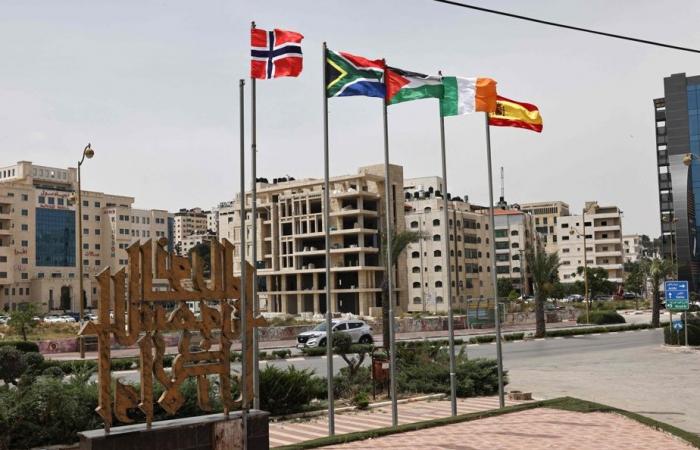On May 28, three European states recognized the State of Palestine; Spain, Ireland and Norway thus became the 143e144e et 145e States among the 193 UN member states to do so. Although they were not the first European countries to recognize Palestine, they still stand out from most Western European states.
Published at 00:31
Updated at 9:00 a.m.
Mr. Alain Vallières
Lecturer at the University of Montreal and researcher at CERIUM
In an explanatory speech, the Spanish Prime Minister indicated that he wanted his country to be on the right side of history. There is no doubt that Israel’s atrocities against the Palestinian people have had an influence on this choice.
Naturally, Canada has not recognized Palestine and seems unlikely to do so in the near future.
In the longer term, Pierre Poilievre, leader of the Conservative Party of Canada and future prime minister according to the polls, even stated in an interview with Radio-Canada that the recognition of Palestine would amount to recognizing “Hamasistan.”
This policy is more rigid than that adopted by the present government, which has always been prepared to recognize Palestine, provided it first obtained Israel’s approval. Canadian politicians have recently announced, however, that Canada is now prepared to do so without such approval.
Recognition of a State simply means that the one which recognizes it accepts the personality of the other with all the rights and duties determined by international law. Recognition does not, moreover, oblige the two States to maintain economic or other relations thereafter.
It is clear, however, that political relations are facilitated and that it becomes easier to make recommendations to the government of that state. Canada can therefore recognize in Palestine the characteristics of a state, without subsequently exchanging ambassadors.
Please Israel
One may question Canada’s submission to Israel’s prior agreement for the recognition of Palestine. Indeed, recognition is one of the fundamental powers belonging to a sovereign state. The only possible justification seems to be a desire to please the Hebrew state and not to exert any influence on it.
On the contrary, the Canadian position put all the pressure on Palestine, which had to please Israel for Canada to recognize it. Unfortunately, in doing so, it seems that Canada was prepared to accept whatever conditions Israel imposed.
However, in light of Israel’s efforts to empty the Gaza Strip of its population, it does not seem impossible that the government of that country is considering some form of redefinition of the borders. One is therefore entitled to wonder whether Canada would have accepted borders that did not meet UN requirements. If Canada were to recognize Palestine now, it could only be along the lines defined by international law, which rejects any territorial conquest by force of arms.
With the number of countries recognizing Palestine increasing, it is possible that Israel will feel the need to quickly end the war in order to better control the “two-state” solution.
The recognition of Palestine therefore transfers pressure to Israel. However, it must be admitted that this pressure is minimal and has little effect on the Israeli government. Spain has noted this and now wants to intervene in the proceedings brought by South Africa before the International Court of Justice.
Advantages
There would be advantages for Canada to recognize Palestine. First, it would move away from the position of the United States with which Canada is generally associated. Canada would no longer be seen as a vassal of its powerful southern neighbour. It is important for Canada to regain credibility internationally by demonstrating the independence of its choices.
Let us recall that on two occasions, Canada was not elected by the UN General Assembly to become a member of the Security Council. Its ongoing support for Israel during votes at the General Assembly certainly had consequences in this regard since in doing so, Canada was not always acting to promote peace and international law. Last but not least, we can hope that these recognitions can help bring about a return to peace.
There is little time left for Canada to integrate itself into the movement for the recognition of Palestine.
As previously reported, the leader of the Conservative Party, and likely Canada’s next prime minister, equates Palestinians with members of a terrorist group and appears to believe that the territory of Palestine is limited to the Gaza Strip. Once he takes office, there is every reason to believe that Canada will once again subject its decision-making in this area to the imprimatur of Israel.
Moreover, if the next American president is Donald Trump, Canada should also resist pressure from its main ally since this candidate’s support for Israel is public knowledge.
However, we must be realistic and accept that Canada’s opinion carries little weight on the international scene and that the pressure referred to remains modest. However, it is permissible to hope that Canadian recognition of Palestine could help Germany, France or the United Kingdom in their choice.
What do you think? Join the dialogue







